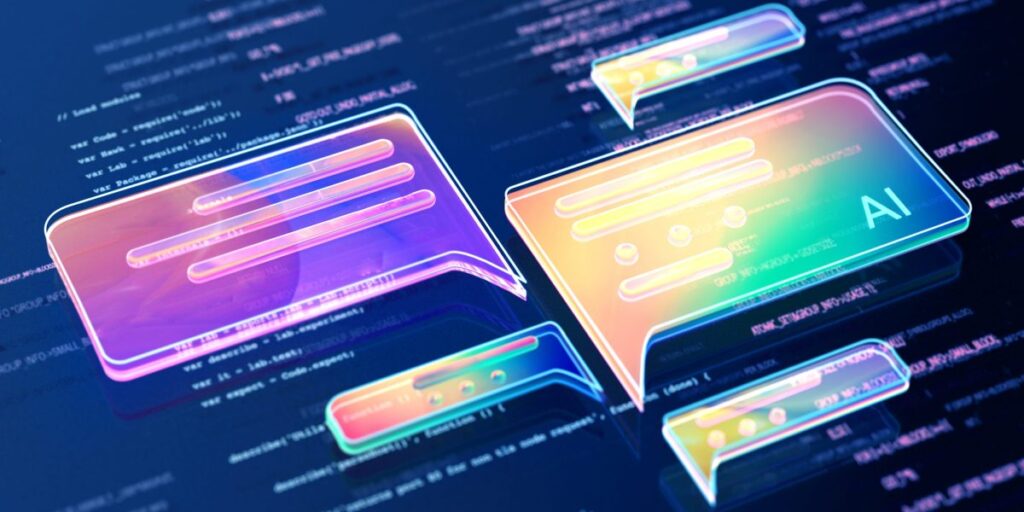Generative artificial intelligence is the elephant in the (class)room at schools nationwide. And while many students have largely caught on to its omnipresence, teachers are lagging behind.
OpenAI, the parent of ChatGPT, is hoping to change the dynamic with a new partnership with one of the best business schools in the country.
Advertisement
STEM-designated. Tar Heel ROI. No compromises.
UNC Kenan-Flagler’s top-ranked online MBA is designed for experienced professionals looking to take their career to the next level. Students have access to lifelong career benefits and a global network of 51,000+ business school alumni. Earn your MBA online in as few as 18 months or up to three years. MBA Fellowships Available.

Starting today, learners can take a course from OpenAI and the University of Pennsylvania’s Wharton School: “AI in Education: Leveraging ChatGPT for Teaching.” The goal is to empower educators to effectively bring generative AI into the classroom and maximize learning, says Leah Belsky, vice president and general manager of education at OpenAI.
“Teachers and professors are an important node in both learning how they can transform pedagogy and transform the way people learn with AI,” says Belsky.
The new class is co-taught by Lilach and Ethan Mollick of the University of Pennsylvania—who have dedicated their lives to AI education. They are the co-founders of the school’s generative AI lab.
While AI and education have tremendous upsides and downsides, Ethan Mollick says the latter has received more attention, with conversations largely focused on cheating and plagiarism. Once people realize the benefits, he says, positive transformation can be endless.
“The class is just as much about what you as a teacher can do with AI to make your life better and make you a more effective educator, a less stressed out educator, as much as it is about how do you create assignments for your students?” he tells Fortune.
Learn more: Here are 7 free AI classes you can take online from top tech firms, universities.
Education is always ‘in crisis’
Ethan Mollick says that higher education is in “absolute chaos” because technology is changing faster than the industry is willing to change—and that students are using AI to cheat, even in instances when it’s not conducive to learning.
86% of college students claim to use AI in their studies, and 28% of students have concerns about faculty’s insufficient AI capabilities, according to a report released in August 2024 from the Digital Education Council. Separate research from Ithaka revealed that while a majority of faculty say they have experimented using generative AI technology, many are not confident in their abilities.
“Higher education is always in crisis, right? Teaching is always in crisis,” he notes. “We muddle through because some of the basic principles of teaching, which is, you know, experts in the field who care about communicating knowledge and (being) constructive—that piece is still there and still important and is going to stay that way.”
At the same time, Ethan Mollick admits that not everyone has to use AI. Just like how some classrooms don’t allow students to use calculators, the same can be done with AI.
OpenAI’s investment in education
OpenAI’s latest partnership with Wharton indicates a larger effort by the company to connect with the education world. The company recently developed a version of ChatGPT exclusively for colleges and universities off the banks of its successful partnerships with schools like Arizona State University.
Just this week, the company also released a free training course, in conjunction with Common Sense Media, targeted at K-12 teachers.
Belsky recently joined OpenAI after nearly a decade working at Coursera, most recently as its chief revenue officer. She says higher education has an important role in connecting the dots for students of when and where AI can best be applied to the real world—and thus be prepared for the workforce.
“It’s really about helping people to learn the content and also putting AI in the hands of learners to engage the AI as they’re learning about it as well,” she says.
The course can be audited at no cost, but $29 is required for access to graded assessments and certification. It takes about one to two hours to complete, and includes four modules:
- Transforming Classroom with Generative AI: A Practical Guide for Educators
- Working with AI
- Building AI Exercises for Students
- Creating GPTs for Educators and Students

